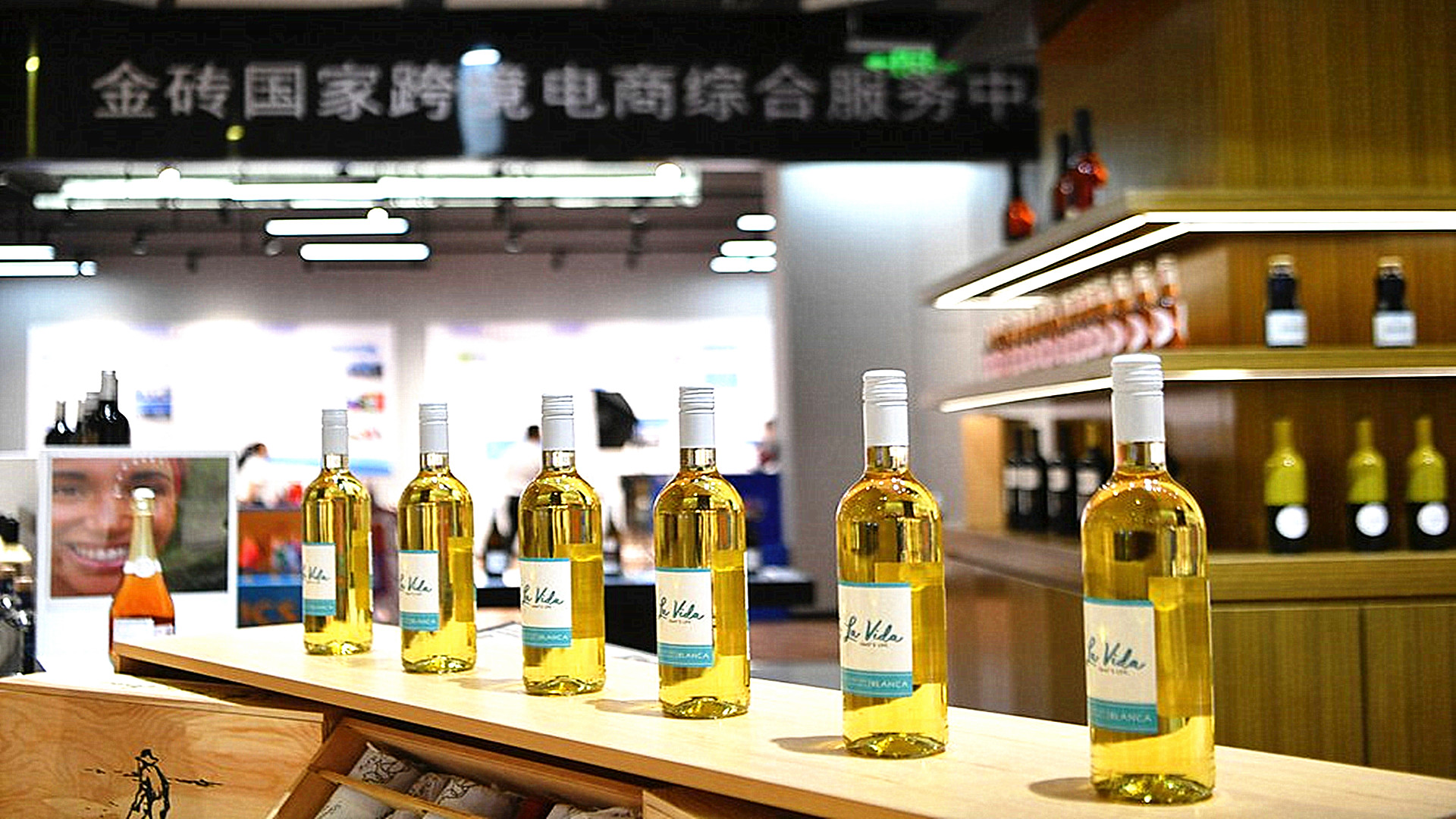
Xiconomics: How China, Along with Other BRICS Nations, Turns Aspirations for Common Development into Reality(2)

Aerial photo taken on June 17, 2022 shows the headquarters building of the New Development Bank (NDB), also known as the BRICS bank, in east China's Shanghai. (Xinhua/Fang Zhe)
His appeal for a people-centered approach resonates with the group's aspirations for shared growth and with his economic philosophy, known as "Xiconomics," which has guided China's own development and promoted its global cooperation programs.
Running a convenience store by an already paved road in Brasil Novo city, 38-year-old Giziany Fernandes Pereira has been enjoying public benefits brought by the project.
"It's much more comfortable now as you don't get your feet dirty as soon as you leave the house. Sales increased at my store because of easier accessibility. It is a wonderful program," she said.
The NDB loans have played a significant role in poverty reduction in the state, said Ruy Cabral, secretary of urban development and public construction of Para. "The NDB has been a spectacular partner for the facilities that it has provided us to date, and we hope to extend this partnership further."
HIGH-QUALITY PARTNERSHIP
"Standing at the crossroads of history, we should both look back at the journey we have traveled and keep in mind why we established BRICS in the first place, and look forward to a shared future of a more comprehensive, close, practical and inclusive high-quality partnership so as to jointly embark on a new journey of BRICS cooperation," Xi said in his speech at this year's BRICS summit on Thursday.
Twenty-one years ago, when British economist Jim O'Neill coined the term "BRIC" -- an acronym for Brazil, Russia, India and China, it read like investment advice, pointing to promising prospects for emerging economies.
With South Africa added in 2010 to become the "BRICS," the group, representing a quarter of the global GDP, 18 percent of global trade and 25 percent of the world's foreign investment, has become a vital platform for strengthening cooperation among the five countries and a vital force for improving global governance.
Trade cooperation among the BRICS countries has seen remarkable progress over the years. In 2021, the total volume of trade in goods of BRICS countries reached nearly 8.55 trillion dollars, up by 33.4 percent year on year, official data shows. Meanwhile, China's trade with other BRICS countries totaled 490.42 billion dollars, a yearly jump of 39.2 percent which outpaces the overall growth of China's foreign trade over the same period.
In April, a string of online sales campaigns themed "Buy BRICS" was held in the southeast Chinese coastal city of Xiamen. In a two-week shopping spree, Chinese consumers bought 270 million yuan (40 million dollars) worth of products from the other four BRICS countries, according to statistics provided by e-commerce platforms.
In 2017, when China hosted the 9th BRICS Summit and other events in Xiamen, Xi suggested that BRICS partners bear in mind their long-term goals rather than narrowly look at growth rates, advance structural reforms and explore new growth drivers and paths to achieve "better quality, more resilient and sustainable growth."

Products are displayed at the commodity service center for products of the BRICS countries in Xiamen City, southeast China's Fujian Province, June 23, 2022. (Xinhua/Wei Peiquan)
His suggestion has proven to be significant to the expansion of BRICS cooperation into more areas. Cooperation in the digital economy has brought tangible benefits to the populations of the BRICS countries, with further digital transformation across various industries expected in the future.
Committed to developing an industrial internet and digital manufacturing, the five countries seek to build an industrial cooperation network to promote the circulation of capital, goods, talent and technology by facilitating an open and inclusive trade and investment environment.
The BRICS members have ample human resources and great economic potential and occupy a pivotal position in the global industrial chain, said Rosalia Varfalovskaya, a leading researcher at the Russian Academy of Sciences.
Amid a complicated international environment, the BRICS cooperation mechanism will play an important role in dealing with external challenges and propelling global economic growth, she said.

